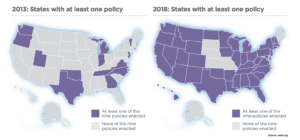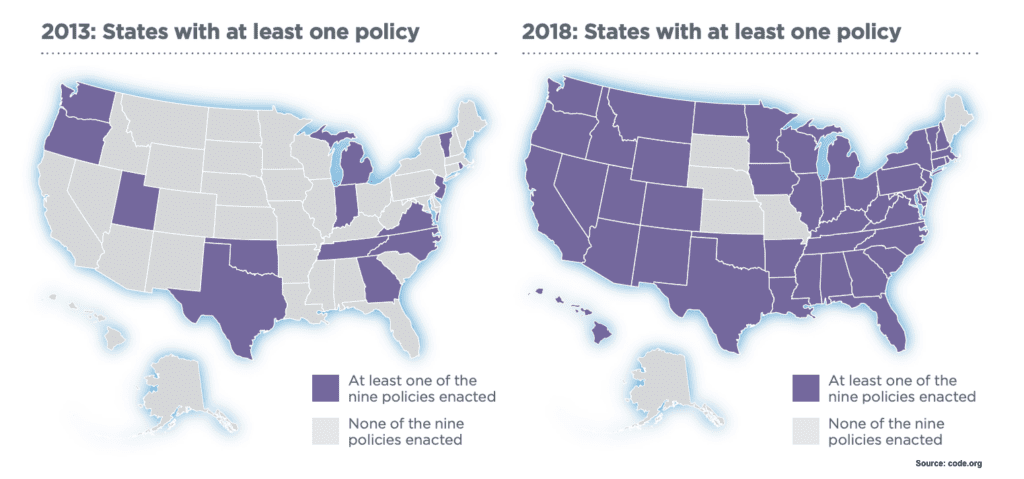For those of us working in the computer science (CS) field, the statistics are glaring.
Full Story
For those of us working in the computer science (CS) field, the statistics are glaring:
-
90% of parents want their child to study computer science, but only 35% of high schools in America teach computer science
-
Computing is the number one source of new jobs in the United States, yet fewer than one in five computer science graduates are women
-
The number of students majoring in computer science at the undergraduate level is increasing, however, the number of PhD candidates – potential new teachers – has remained relatively unchanged in the past five years
While it is widely acknowledged that a degree in computing and other STEM fields can lead to a high paying job, as a nation we haven’t hit our stride in bringing this curriculum to the classroom. And there is no one-size-fits-all solution to getting this right. There are challenges with access, funding gaps, relevant content – the list goes on.
But over the past few years, momentum around this issue has grown and the tide is turning. In 2013, just 13 states plus Washington, D.C. had adopted a computer science standard. By 2018, that number had jumped to 44 states. Policy is a key enabler in bringing CS education into the classroom. Importantly, three of the nine policies often cited as foundational focus on supporting teachers.

Strengthening CS in K-12 classrooms through support of our educators is something that the Computer Science Teachers Association (CSTA) and Infosys Foundation USA are committed to doing. And we believe that the benefit of investing in our educators extends far beyond just the teacher. Across their career, the average teacher will reach over 3,000 students and K-12 students are spending as much, or more, time in school with their teachers as they are at home. Increasing teachers’ confidence with bringing dynamic computer science curriculum into the classroom is key to ensuring all students have access to a high-quality computer science education.
To celebrate their work, educators, administrators and leading computer science organizations will come together this week in Phoenix, Arizona for the 2019 CSTA Annual Conference. This convening provides immersive learning experiences, inspiring keynotes and is meant to recognize and support teachers for their efforts to make computer science accessible for all. As part of this event, a portion of Tuesday’s general session with highlight excellence in teaching. For the past three years, CSTA and Infosys Foundation USA have teamed up to acknowledge computer science educators for their outstanding achievement in the classroom through the CSTA/Infosys Foundation USA Awards for Teaching Excellence.
 This is the only award that recognizes computer science teachers for their contributions in the classroom – awarding five winners and five honorable mentions. This year’s winners embody key values of both CSTA and Infosys Foundation USA: diversity, inclusion and equity. They are dedicated to ensuring that underserved and under-resourced populations have equal access to CS programming in their schools and have demonstrated how this curriculum can be applied to careers in the future.
This is the only award that recognizes computer science teachers for their contributions in the classroom – awarding five winners and five honorable mentions. This year’s winners embody key values of both CSTA and Infosys Foundation USA: diversity, inclusion and equity. They are dedicated to ensuring that underserved and under-resourced populations have equal access to CS programming in their schools and have demonstrated how this curriculum can be applied to careers in the future.
Congratulations to this year’s winners – Jonathan LoPorto, Elaine Griggs, Michelle Cannon, Nimmi Arunachalam, Laura Ramirez – as well as the honorable mentions – Lanna Mack, Kristie Steinlicht, Andrea Salas, Michelle G. Lee. And a special thank you to all of the CS teachers who go above and beyond to level the playing field and prepare their students for success in the digital economy.


